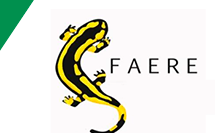In this paper, we investigate the social preference patterns for the production of three non-renewable resources i.e. gold, uranium and rare earth elements in a mineral-rich province of Canada, Québec. Using discrete choice experiment method, we assess the extents to what multiple minerals present varying preference patterns. Following the same changes of mining plans for a new mine, we find that preference tastes significantly differ across minerals. Technology risks' perceptions over landscapes' aesthetic and water quality would not be homogeneous for the whole population. Heterogeneous preference patterns are mainly strengthened by the proximity to the mine, risk perceptions with mining operations and common knowledge over non-renewable resources.
Overall, citizens are averse to the opening of a new mine confirming that proposed changes in the mining projects do not fully compensate the respondents' disutility. Contests against the opening of the new mines are strongly driven by trust losses in mining companies and institutions as well as being owner of a country home in the neighborhood of the new mine. We obtain mixed results across minerals for others sociodemographic characteristics.
Our findings suggest that institutions should design resource policies that include heterogeneous preferences for non-renewable resources. Otherwise, institutions assuming homogeneous preference for mining projects could misunderstand citizens' expectations and face unpredictable social tensions. We hope to provide useful guidelines for the mineral-led development to improve good corporate governance and better reconcile mining operations with the current social preferences of citizens. Additionally, our paper explores social concerns from mining operations in a developed country and could be easily replicated in the context of developing countries.




